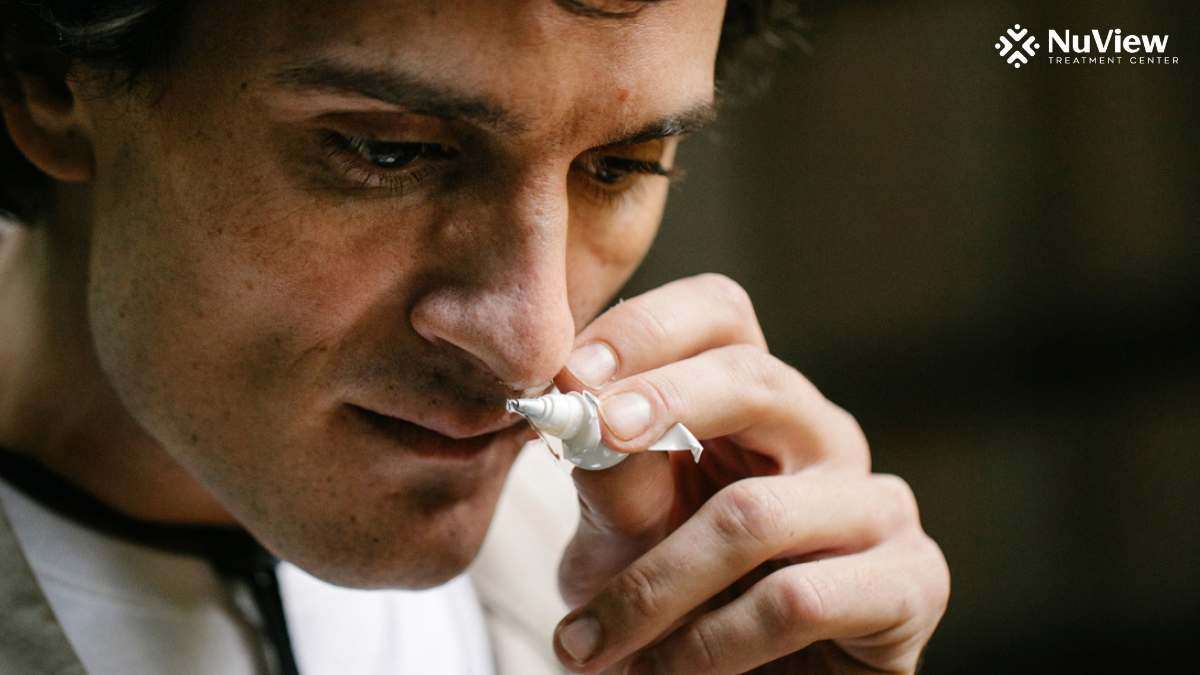What Is Sniffing Glue?
For many, “sniffing glue” sounds like something very innocent. However, this seemingly innocent act hides something very severe. For many middle and high school children, inhaling household products like glue/household chemicals, sometimes also known as “huffing,” is a cheap and easily accessible way to get high, as it leads to a feeling of euphoria. However, what can begin as something experimental can lead to significant physical and psychological consequences.
In this blog, we break down what inhalant abuse really looks like, why it is more common than you might think, and the long-term effects it can have on a young person’s life. Whether you are a parent, educator, or concerned friend, understanding these risks is the first step in preventing lasting damage.
How Glue Sniffing Affects the Brain and Body?
Glue sniffing and other similar kinds of inhalant abuse cause considerable damage to the brain and body. As it is more prevalent among younger teens whose brains and bodies are still developing, these damages can be even more severe.
Some of the unwanted inhalants' short-term effects include:
- Headaches
- Abdominal pain
- Vomiting
- Impairment of coordination
- Tingling sensation in the limbs
- Fainting
Some of the more concerning long-term effects of inhalants are as follows:
- Mood swings
- Apathy
- Difficulties in interpersonal relationships
- Injuries as a consequence of impaired judgment
- Choking on vomit
- Liver and kidney damage
- Seizures.
Get Started With Nuview Treatment Center
Our dedicated professional staff is here to guide you or your loved one on the journey to lasting recovery, offering support every step of the way.
Dangers and Health Risks of Glue Sniffing
Glue sniffing can turn life-threatening. While not always lethal, some of the dangers and risks are as follows:
- Weakened immune system.
- Hearing loss.
- Kidney damage.
- Brain damage can lead to conditions like multiple sclerosis.
- Irregular heart rhythm or arrhythmia.
- Acute respiratory failure can lead to lung damage. In extreme cases, it leads to coma.
- Sudden death, which is a result of heart failure as a consequence of sniffing glue.
Types of Inhalants
While glue sniffing is one of the common ways to get high, it is not the only way. Some of the common household items that are used by younger teens to get high and can be equally dangerous are:
- Shoe polish
- Markers
- Nail polish remover
- Paint thinner
- Gasoline
- Aerosol sprays
- Cleaners.
What Are The Methods of Inhalant Abuse?
Some common methods of inhalant abuse are as follows:
- Sniff - The most common way to sniff inhalants is from the container itself.
- Spray - If inhalants are available in a container with spray, then they are sprayed directly into the nose.
- Inhale - An inhalant is either released, sprayed, or even transferred into a bag or balloon and then inhaled.
- Huff - A rag is soaked in the inhalant and then held to the nose or stuffed in the mouth.
Get Started With Nuview Treatment Center
Signs and Symptoms of Glue Sniffing
Being aware of the signs and symptoms of glue sniffing and other inhalant use is the first step to having a conversation and seeking help. Some of these signs and symptoms you need to be aware of:
- Chemical stench on the breath and clothes
- Stains on clothes, of points, and oils
- The presence of a glue sniffer’s rash, which refers to a rash around the mouth.
- Messy appearance
- Truancy
- Poor academic performance
- Slurred speech
- Restlessness
If you notice any of these signs in your children, students, or anybody you know, it is an indication that they need substance use treatment.
Treatment Options for Glue Sniffing
Sniffing glue or inhalant use is like any other substance use disorder, with a great potential for abuse. It requires holistic yet personalized treatment for it to be relevant and effective. Some of the most effective treatment paths are as follows:
- Cognitive Behavioral Therapy - Cognitive behavioral therapy or CBT involves identifying the maladaptive thinking, emotional, and behavioral patterns underlying glue sniffing or inhalant use and reshaping them. Children are also equipped with healthy coping skills to handle cravings, manage stress, and other factors in life that can lead to glue sniffing and other forms of inhalant abuse.
- Family Therapy - Involving the family in treatment is beneficial, as it helps in educating families regarding glue sniffing and other kinds of inhalant abuse. Family therapy, specifically, helps change any unhealthy dynamics and communication patterns and helps build stronger relationships.
- Ongoing Care - Telemedicine and informal peer groups like 12-step recovery programs can provide safe spaces for people to share their experiences and find encouragement for recovery and long-term sobriety.
What is more important to keep in mind when it comes to glue sniffing and other forms of inhalant abuse is that prevention is always better than a cure. As it is prevalent among younger teenagers, given that nearly 20% of middle school and high school students engage in some sort of inhalant abuse, parents and guardians can take the following steps to prevent the same:
- Discuss the household items that have the potential for abuse.
- Educate the child that the inhalants are dangerous chemicals.
- Inform the child regarding the side effects and dangers of sniffing glue and other inhalants.
If you’re concerned about a child or loved one, reach out to NuView today - because the right help, at the right time, can make all the difference. Call (323) 307-7997 or email us at info@nuviewtreatment.com now.
Frequently Asked Questions (FAQs)
Why do people sniff glue?
Sniffing glue and inhaling some other household chemicals is a common and cheap way of getting high. It leads to a pleasant experience of euphoria. Since it is inexpensive, it is common among younger teens.
Can huffing kill you?
Yes, huffing or inhalant abuse can give rise to irregular heartbeat. This can lead to coma or even sudden death in many cases. In fact, there are chances that a person can die from one single huffing session.
- What Is Sniffing Glue?
- How Glue Sniffing Affects the Brain and Body?
- Dangers and Health Risks of Glue Sniffing
- Types of Inhalants
- What Are The Methods of Inhalant Abuse?
- Signs and Symptoms of Glue Sniffing
- Treatment Options for Glue Sniffing
- Frequently Asked Questions (FAQs)
- What Is Sniffing Glue?
- How Glue Sniffing Affects the Brain and Body?
- Dangers and Health Risks of Glue Sniffing
- Types of Inhalants
- What Are The Methods of Inhalant Abuse?
- Signs and Symptoms of Glue Sniffing
- Treatment Options for Glue Sniffing
- Frequently Asked Questions (FAQs)
Get Help Today!
Everyone is Welcome Here and We All Have Your Back
Your healing journey deserves a personalized approach. At NuView, we integrate expertise in behavioral therapy, mental health, and substance use treatment to create a customized recovery plan tailored to your unique needs.
Connect with our Admissions Specialists today.







Written By
Dr. Ryan Peterson